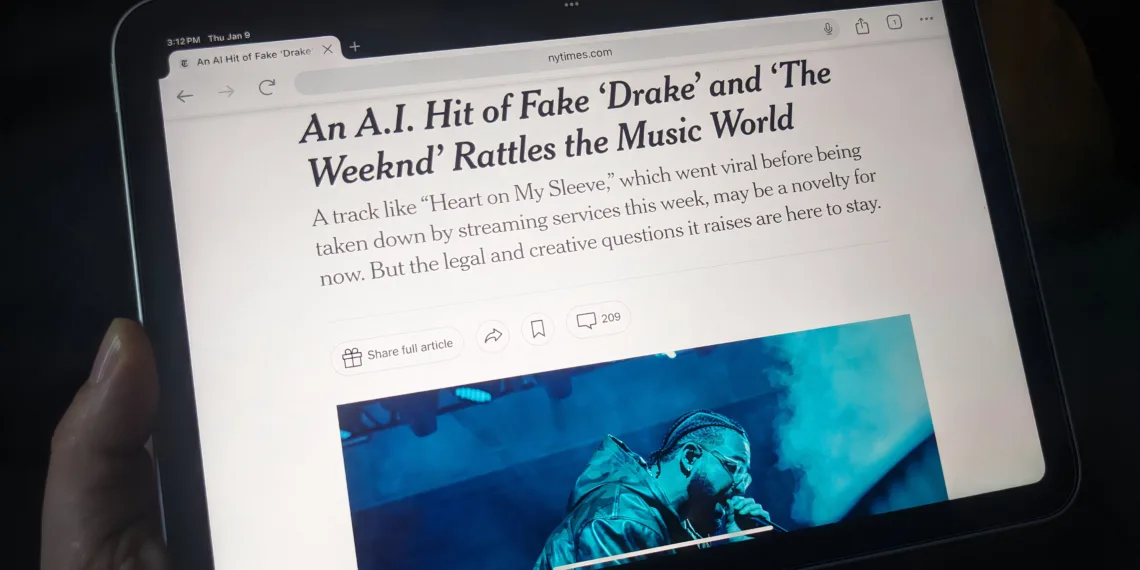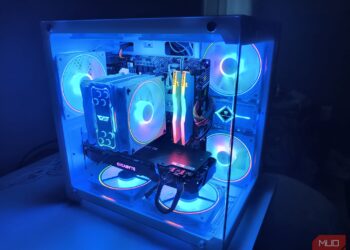I utilize AI audio generators to ignite my creativity or even to compose entire pieces, yet I’ve discovered that they come with some hidden challenges.
1
Generic Output
One of the biggest concerns when using AI for music creation is the possibility of generating generic, formulaic tracks. While these AI tools are capable of producing music across diverse genres and styles, the results often miss the authentic human touch that makes music feel fresh and innovative. These tools typically operate using predefined templates, common musical structures, or an assortment of samples. Consequently, the output tends to sound predictable and lacks personal flair.
If you rely solely on an AI tool to generate a commercial song, the end product may sound eerily similar to other tracks in that genre, devoid of your distinct voice or unique style that would set it apart. As technology advances, AI may produce more complex and creative music. However, it will likely still lack the soul, spontaneity, and vibrancy of genuine artistic expression.
Incorporating human elements into AI-generated music can enhance its originality and authenticity. This could involve adding a vocal track or even a live-performed instrument. You can also enrich your music by integrating additional audio and MIDI tracks using free online audio editors or digital audio workstations.
2
Copyright Issues
As the use of AI-generated music rises, so do concerns around copyright and intellectual property rights. AI music generators are designed to mimic existing songs, patterns, melodies, and rhythms sourced from copyrighted material. This situation creates significant legal and ethical questions about ownership and fair use.
For instance, in 2023, a controversy emerged involving Canadian artists The Weeknd and Drake when AI-generated songs imitating their voices surfaced online. These tracks were produced by AI models based on the artists’ prior work, raising alarms about copyright infringement and unauthorized use of their likenesses and sounds. This situation ignited a debate about whether music created by AI should be regarded as original, considering that it relies on existing copyrighted works.
If you release AI-generated music, it could closely resemble works already protected by copyright. While AI doesn’t literally “copy” in the traditional sense, it can adapt aspects of existing music in potentially problematic ways. Therefore, you must be cautious about the data you use and ensure that your AI-produced music complies with copyright law to avoid litigation or financial repercussions.
3
Quality Concerns
Another major limitation of AI-generated music is its frequent lack of emotional depth, complexity, nuance, and musicianship compared to traditionally created music. Although AI can rapidly generate melodies, beats, and chord sequences, it struggles to capture the subtleties that resonate with audiences.
As a musician, I’ve been surrounded by artists who dedicate their lives to infusing their personal experiences and hard work into their music. Whether it’s a powerful vocal performance, an intricate chord progression, or a detailed arrangement, human creativity brings a richness that AI simply cannot replicate.
While an AI audio generator may produce an catchy melody, it typically falls short in conveying the meaning or emotional weight that a human composer brings to the table. The nuances of rhythm, phrasing, and improvisation—essential elements of truly engaging music—are often beyond AI’s grasp. Thus, it’s important to recognize AI’s limitations when employing it for music creation.
4
Morally Gray Areas
Even if an AI-generated track sounds impressive, there are moral and emotional considerations to keep in mind. For many musicians, the creation process is all about the journey from an initial inspiration to the completed piece. While AI can churn out a technically competent song, it falls short in terms of the personal investment that comes with crafting something from the ground up.
Moreover, the use of AI for music creation raises ethical questions regarding artistic authenticity. Leaning on technology to generate your work can be seen as taking a shortcut—or worse, as cheating. One can hardly claim their project is a genuine artistic expression when much of the work was done by an algorithm.
If the music-making process shifts excessively toward automation, it could diminish the appreciation for musicians who commit years to honing their craft and creating original compositions. While AI audio generators offer exciting possibilities for music production, an overreliance on these tools could ultimately undermine the essence of what makes music truly meaningful.
The significant concerns surrounding AI audio generators shouldn’t be ignored. As technology continues to advance, musicians, producers, and listeners must remain aware of the challenges and carefully weigh the advantages and disadvantages for the betterment of the industry as a whole.





